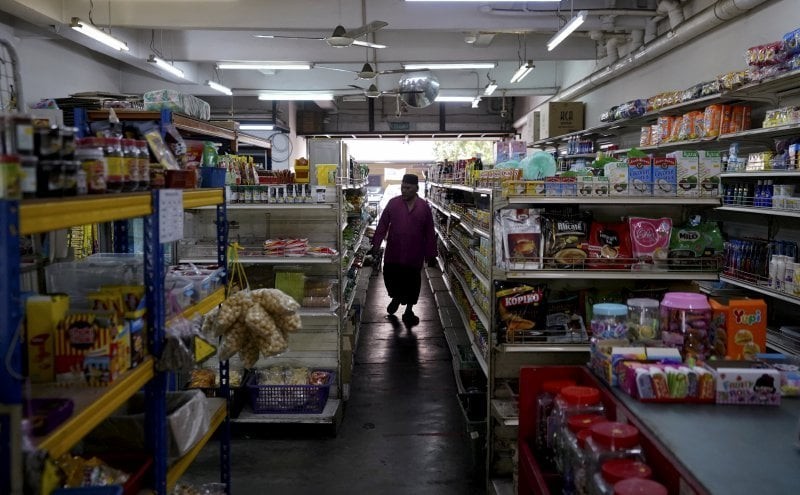
KUALA LUMPUR: The government's move to raise the sales and service tax (SST) registration threshold to RM1 million is seen as a positive step that offers some breathing space for micro, small and medium enterprises (MSMEs), although wider structural challenges remain.
Small Medium Enterprise (SME) Association of Malaysia president Chin Chee Seong said the higher threshold will ease some cost pressures for small landlords and tenants, providing modest relief for smaller businesses working hard to stay afloat in a tough economic climate.
However, he noted that many MSMEs, especially those renting from large commercial property owners, will still have to bear the eight per cent service tax, meaning the tax burden will continue to weigh on businesses already struggling with tight margins, rising costs and subdued consumer spending.
"As such, the tax burden continues to cascade onto small businesses, many of which are already grappling with razor-thin margins, inflationary pressures, and weak consumer demand," he told Business Times.
Chin pointed out that the higher threshold is unlikely to have a significant impact on government revenue, as it mainly exempts a small group of smaller service providers.
He cautioned, however, that the larger economic impact of not easing the SST burden for MSMEs could include business closures, job losses and higher prices for consumers, outcomes that could ultimately cost more than the short-term tax revenue gained.
He added that the government must prioritise long-term economic resilience over marginal revenue expansion, particularly when over 60 per cent of Malaysia's gross domestic product (GDP) is driven by domestic consumption and SME activity.
On the exemption of imported fruits such as mandarin oranges and dates from the sales tax, Chin described it as a thoughtful gesture that will help keep prices stable during key festive periods like Chinese New Year and Ramadan, benefiting many low- and middle-income households.
He noted that this can help keep prices stable during festive seasons and provide small relief for low-income and middle-income households.
However, Chin said the impact on overall inflation will be very small, as these fruits make up only a small part of what people usually spend on.
"Without addressing bigger cost issues like the eight per cent SST on commercial rentals, high logistics costs, and rising prices of goods.
"This exemption won't make a big difference in controlling inflation. In short, while this is a welcome and symbolic gesture, it should be part of a broader and more effective plan to control rising costs and support consumer spending," he said.
Overall, Chin said the government's decision to revise the SST, particularly by exempting beauty services and raising the registration threshold, shows it is responding to public concerns and industry feedback, which is a positive step.
He added that it reflects a move towards more targeted and thoughtful tax policies, instead of applying the same rules to everyone.
However, Chin said these decisions also highlight a reactive approach made after pushback, rather than based on proper economic analysis or early consultation.
He added that making tax changes in bits and pieces can cause confusion, create loopholes, and make the system harder to manage.
"To build trust and ensure fairness, the government should develop a clearer, long-term tax strategy based on actual business data and input from all affected sectors.
"A more structured system, perhaps reconsidering goods and services tax (GST) with input tax credits, may offer a fairer and more sustainable solution in the long run," he said.
On June 27, the government announced a revision to the SST framework, following extensive feedback from the public and engagement with industry stakeholders on the proposed expansion.
As part of the revised plan, imported mandarin oranges and dates will be exempted from the sales tax, while essential goods such as rice and local fish will remain tax-free.
The service tax registration threshold has been raised to RM1 million for selected sectors, easing compliance for small businesses.
The government has also scrapped the proposed service tax on beauty and personal grooming services such as manicures, pedicures, facials, barber services, and hairdressing.
Source: https://www.nst.com.my/business/economy/2025/06/1237721/sst-revision-welcomed-broader-relief-needed-msmes

